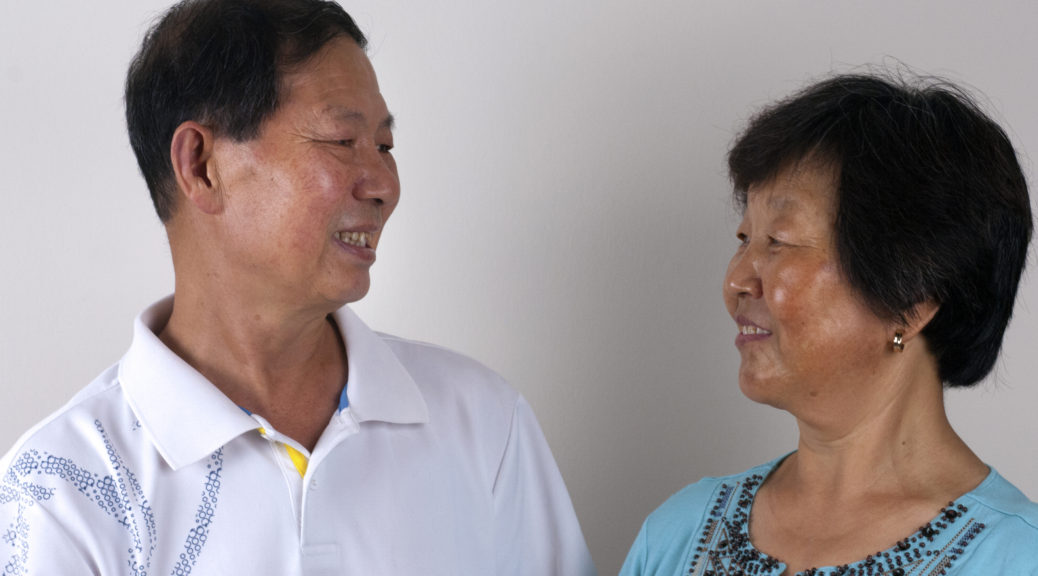
Learn to Share Respect: Part 1
Value, Validate and Venerate Others
*Names have been changed to protect privacy.*
Being respected is important to Arturo Hernandez. So, when he was diagnosed with prostate cancer in 2010, he went through the experience in a way he felt would earn respect from his family, friends, and coworkers. Despite the toll cancer treatment took on his body, he refused to stop working.
“I kept on doing things even if it took me longer and longer and longer to complete.” He kept goals and tried to lead his life the way he always had. He explains, “I was not looking for sympathy from other people but to gain respect for the way I was handling the thing. More than anything, it was like a process I had to complete.”
The definition of respect can vary from person to person. We know we want to be respected. We know when we’re not getting enough. So, what does it mean to be respectful? What experts say is that when we respect another person, we value their feelings, thoughts, and behaviors. We show our respect by how we treat others, what we say to them, how we say it, and by actively listening.
There are different kinds of respect, such as respecting an opponent, nature, laws, or institutions. For some of these, there may be codes of conduct that direct how to show respect. Saluting officers in the military or placing your hand over your heart during the National Anthem are two examples. Behaviors to communicate respectfully between individuals are less clear. In this article, we provide useful guidance to help avoid situations that might be perceived as disrespectful and offer tips to improve communication with those touched by a cancer journey.
How Do You Define Respect?
First, what does respect mean to you? Consider the following groups of words. Which better describes how you give respect? Which better describes how you prefer to be shown respect?
Deference Esteem
Commanding Considerate
Deferent Admiring
Fearful Honest
Revered Attentive
Forceful Trusting
Authoritative Supportive
Self-serving Caring
Demanding Reliable
Expected Empathic
Obedient Thoughtful
Numerous studies have found that respect is a cornerstone of personal relationships. In healthy relationships, respect is shared. People who bully and shame others often incorrectly label fear or obedience as respect. But it’s not. In close trusting relationships, respect is two-sided and demonstrated through mutual supportiveness, empathy, and kindness. Treating others with respect often results in being treated with respect. However, as the exercise above shows, respect can mean different things to different people depending on their background, experiences, and culture. That’s why it is important to discuss respect with friends and family and clearly explain your feelings about respect.
Respecting Different Styles of Communication
“I’ve been in the position where I was not the patient, but…cancer spread through my family, my wife’s family, my wife, and I’ve been able to see…the different styles. And what’s been said here about respecting styles is incredibly important, because people do handle situations in different ways.”-anonymous
When everything in life is going well, it’s not too hard to be respectful. However, disagreements and differences in communication styles can be more apparent during difficult situations, such as when cancer is first diagnosed and disclosed to family, friends, and coworkers. Comments that reflect one person’s beliefs can be seen as disrespectful or offensive to those who feel differently. Coping styles may collide, leading to disagreements and hard feelings. Although it can be difficult to respect another person’s choices when you don’t agree, respect for other points of view can reduce conflict. Consider times along the cancer journey, such as treatment decisions or end-of-life discussions, where respect for yourself or others might become more challenging.
Mentions of religious faith or spirituality can quickly lead to misunderstanding. Some individuals find comfort and undergo a deeply spiritual experience as a result of their cancer journey; others do not. Cancer can rock a person’s faith. For others, it may trigger the start of spiritual exploration. For example, the relationship between Texas resident Michelle Rasmussen and her family grew more strained after her father’s cancer diagnosis. She sought support through her church. Her mother and sisters did not. A fellow church member met and prayed with Michelle every week. “They were neutral. I could tell them whatever was on my mind without being ostracized or ridiculed,” said Michelle. “The church helped immensely. They were there to listen and support. They brought God back into the picture to remind me that I’m not alone in my journey.”
Friends told Michelle that God would not give her more than she could handle. She found comfort in those words. For others, a comment like this would be upsetting. If you don’t have a close relationship with someone or know their trigger points, the following statements can express support and empathy without being offensive:
- “I care about you and want to support you.”
- “I’m not sure what to say, but I’m here to listen if you feel like talking.”
- “Could you use some help with (name something specific)?”
Another high-risk area of communication where respect can play a significant role is the Internet. Although social media platforms can be supportive for cancer patients and caregivers, they can also create conflict. Comments intended to be humorous or helpful can come across as disrespectful or hurtful. There can also be problems when someone posts content about another person, such as a cancer diagnosis, that trumps the other person’s ability to tell their story themselves. Or, perhaps, the person wanted to keep the information confidential. In today’s technological age, respecting another person also means following good social media etiquette.
Try using the following strategies for communicating respectfully online:
- Before posting, commenting, and emailing, read several times.
- Be careful of the tone; remember people cannot “hear” what you are writing.
- Ask yourself if the other person will understand what you’re trying to say.
- Resolve conflict offline rather than publicly.
- Think twice before posting information on a social network about someone else even if you don’t name the person. Sometimes we give enough information for others to connect the dots.
- Consider whether others will be offended or OK with the method of communication you choose.
Showing Respect and Receiving it in Return
Several years ago, in a story published in a nursing journal, a nursing intern described an interaction between two nurses as they were admitting an unconscious woman with end-stage renal disease. One nurse asked the other if he needed anything. He said a “do-not-resuscitate order.” The nurses laughed. When the intern protested, the nurses said the patient couldn’t hear anything. The intern took the patient’s hand and asked her to squeeze if she could hear the conversation. The woman did (“Communicating Respect”, 2003).
The point of this anecdote is that respect is tightly interwoven with empathy. To communicate respectfully you must see a situation from the other person’s viewpoint. Respect can be communicated through words, by body language, and by trying to understand a person’s cancer journey. It is critical in interactions between a doctor and patient or caregiver. Many ill feelings toward healthcare professionals occur when the patient feels the physician is being condescending or dismissive rather than empathic.
Arturo Hernandez said his doctor viewed him as a test subject rather than a patient. He switched doctors until he found one that made him happy. San Diego resident Katrine Bellamy described one of her son’s physicians as a used car salesman. “He was trying to sell us on a treatment. I was done. That was enough for me.”
On the other hand, Tim Hayes, who was diagnosed with testicular cancer, trusted his oncologist implicitly. “I just believed him.” The doctor presented him with options and discussed the pros and cons before asking which direction Hayes wanted to take. The doctor made Tim part of the decision-making process and also offered feedback on his choices.
Respect and empathy can be difficult when other people’s actions hurt your feelings. After Katrine’s nine-year-old son Steven was diagnosed with a brain tumor, a friend stepped back from their relationship. She also refused to tell her children about Steven’s cancer. “At the time I was very hurt by it,” said Katrine, but she believes the experience changed her friend for the better. “I don’t think she’d do that again. I always say, don’t push people away and be mad or you’re going to push away a lot of the people you need. Usually, the behavior is coming from someone’s own pain. No one knows the right thing to say.”
Some patients and caregivers may feel it’s up to others to be more respectful and empathic. They may ask, “I’m on the front lines with cancer. So, why should I be the one worrying about other people’s feelings?”
Respect and empathy are reciprocal. They must be given in order to be received. That means patients and caregivers should also consider other people’s perspectives. As Katrine pointed out, many people don’t know how to respond when they learn someone has cancer or wants to talk about their cancer journey. Providing advice, mentioning a cousin who had cancer or bringing up their spiritual beliefs may be another person’s well-intentioned effort to empathize. Caitlyn Green, who was diagnosed with breast cancer, says of these attempts, “I appreciate people trying and failing than not trying at all.”
Keep in mind that having respect and empathy doesn’t mean giving in or shouldering another person’s emotional needs. It means trying to understand their point of view, which can lead to greater understanding and improve communication.
Some cancer patients and survivors may feel that their doctors, nurses or other medical team members are sometimes dismissive, abrupt or rude in conversations. Empathy is lacking in these situations where you do not feel respected. Consider using the following statements to let your doctor know you want to be respected:
- “I’m feeling pressured to make a decision. This information is unexpected and a lot to process. Can we meet again in a few days after I’ve thought through the options you’ve given me?”
- “I’m afraid I don’t understand some of the terms you’ve used. Could you explain it again using simpler language?”
- “I want to respect your time so could you please listen to just three of my questions today and give me unrushed answers?”
Showing Respect through Nonverbal Communication
Respect is a fundamental aspect in intimate relationships and influences how individuals relate to each other and how satisfied they are with the relationship. Individuals who have respect for others are often willing to compromise. Respect is often conveyed by how we say something as much as by what we say. A civil tone, good eye contact, and strong listening skills can demonstrate respect. Listening is a basic but essential skill that demonstrates respect and empathy and helps to minimize conflict in conversations.
Reference:
“Communicating Respect” (2003). Nursing, 33(7), p 81. Retrieved from web: http://journals.lww.com/nursing/Citation/2003/07000/Communicating_respect.66.aspx

This research project was funded by a grant from the National Cancer Institute (CA144235; Dr. Wayne Beach, San Diego State University, Principal Investigator). Co-investigators included Dr. David Dozier from San Diego State University, and Mary Buller, Dr. Valerie Myers, and Dr. David Buller from Klein Buendel, Inc.